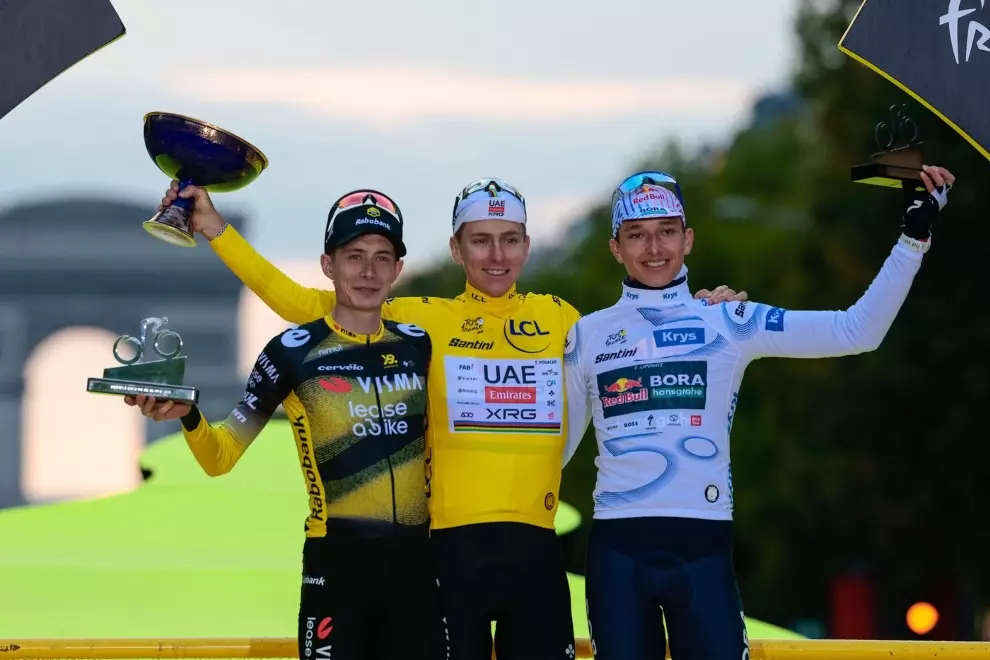Tadej Pogačar’s astonishing 81-km solo attack to secure victory at the Strade Bianche was a feat that left many speechless, including the Slovenian rider himself. Launching an offensive from such a distance, Pogačar shattered conventional cycling strategies, reminiscent of legendary exploits by cycling greats like Bernard Hinault and Eddy Merckx. In his first race of 2024, Pogačar’s performance seemed to defy the norms of professional cycling, showcasing ease and dominance rarely seen.
Despite the gruelling conditions and a highly competitive field, Pogačar’s move didn’t appear as a dramatic breakaway but rather a seamless acceleration that left his rivals unable to respond. The race conditions, combined with Pogačar’s strategic brilliance, effectively sealed the victory well before the finish line.
Pogačar’s own reflections on his audacious attack were modest and somewhat mystified:
“I don’t know why,” he admitted, pondering the timing of his decisive move. The race’s intensity from the outset and the early selection process seemed to set the stage for something extraordinary. “The race was really fast from the start and it was already quite selective super early,” Pogačar observed, highlighting the unexpected early challenges of the race.
The conditions on the Monte Sante Marie, marked by a hailstorm and treacherous mud, played a significant role in Pogačar’s decision to break away: “There were no more resources left in the group with 25 riders, my team made it super hard and there was a moment when you couldn’t see anything, it was so muddy, and I decided to go on the attack there. I knew it was going to be long but when I had a gap, I knew that I had to go until the end.”
Pogačar’s physical condition and team support were crucial factors in his ability to sustain the breakaway: “At first, I was feeling good, really good, and the team did a super job but I could see it was going to be tough to the finish,” he recounted. The adverse weather seemed to only bolster his resolve. “When it was really raining a lot, I felt good and decided to go solo.”
Pogačar’s rivals, like Toms Skujiņš and Tom Pidcock, acknowledged the futility of challenging such a commanding lead, emphasising the difficulty of competing against Pogačar’s exceptional form. Pidcock, in particular, lamented the missed opportunity to better strategise for a podium finish.
As Pogačar gears up for the upcoming Milan-San Remo, the cycling world watches with bated breath, eager to see what boundaries he will push next in his pursuit of a fourth monument victory.




